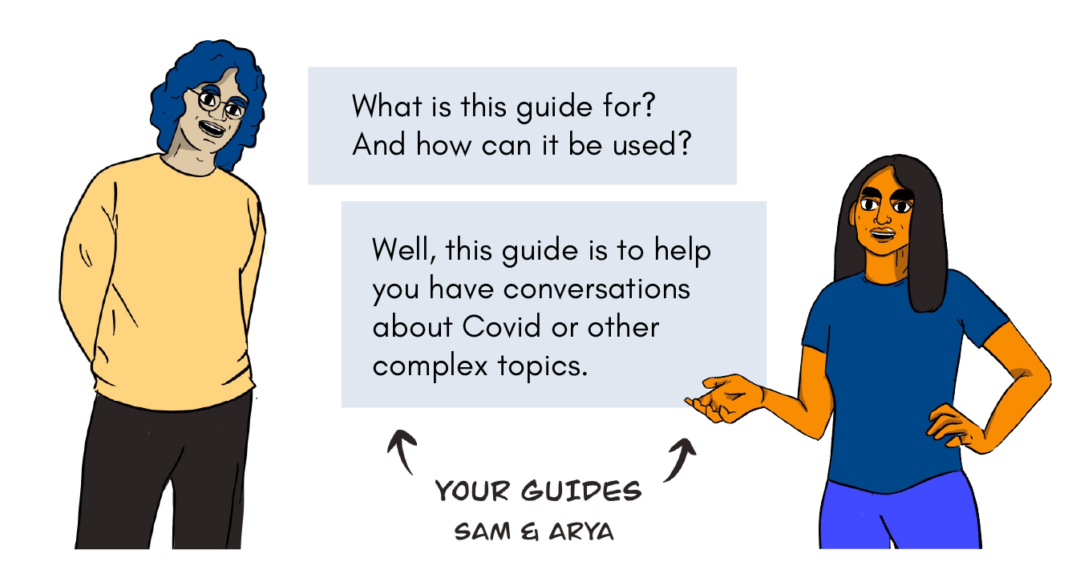Jo just started a new job after a long time being unemployed. They arrive at your office unannounced, extremely upset and agitated, almost incoherent with distress.
Read moreTopic: Small Business or Employer.
Home → This
How not to jump to conclusions
You meet Max for the first time when he comes to an interview. He is tall, thickset, wearing a black hoody, and with face tattoos.
Read moreThe Illustrated Guide to Covid Conversations
Financial Insecurity
Sue has been working with you for a few months after being unemployed for two years. Initially she was very enthusiastic and engaged, but recently she has begun to show signs of tiredness at work. You notice she is no longer bringing her lunch and seems to be withdrawing from social events after work. She approaches you to ask for an advance on her pay.
Cues & Clues for Effective Managers
What happens when I become a manager?
When we become a manager, our lives change. We move from being responsible only for the quality and quantity of our own work to being responsible and accountable for the performance of others.
Success within the workplace is now redefined for us to include how well the team is performing, how we are managing the individuals within the team and how well we are working with our colleague managers.
Read moreLooking for more help? Use these search terms
There are many existing resources available online. Use these search terms to help direct you to the most relevant resources
Read moreSix questions to find out if your work is working for you.
When thinking about their ideal job, most people think about pay, how far they have to travel, their career path, or what ‘work perks’ they get. But research shows the things that actually make a job great are some ‘work related factors’ that might not be on your list at all.
Ask yourself these 6 questions that will get you thinking about whether your work is actually working for you.
Read moreWhat’s your role in creating a mentally healthy workplace?
A typical job description is usually about the responsibilities and duties of the job, but what responsibilities and duties do managers and young people have to both themselves, and other workers, to ensure they are contributing to an emotionally safe workspace?
We’ve asked young people what they look for in an ideal supervisor, and asked managers what they would like to see in their employees. See the job descriptions below and see how you are contributing to a positive and productive working environment.
Read moreWhat are Work Related Factors?
Work Related factors are anything in the design or management of work that can positively or negatively impact an employees mental health. Learn examples of what these can be and how you as a leader can influence them.
Understanding Work Related Factors means we know what we need to change to build mentally healthy workplaces.
Source: WorkSafe Work Well
Unsafe is always unacceptable
Worksafe conducted a social experiment to determine if young people could identify an unsafe work environment as well as their rights and responsibility to a safe workplace.
Many young people find themselves working in unsafe conditions which can put them in danger, both mentally and physically. Young workers have the right to feel safe at work, and employers have a responsibility to create a safe working environment. Under the supervision of leading psychologist, Dr Michael Carr-Gregg, we conducted a social experiment where we invited a group of people aged 18yrs – 25yrs to a series of ‘industry information sessions’ and outlined some of the unsafe conditions they could face in the workplace. Each participant was asked whether they would be willing to work in these conditions.
Source: Worksafe Victoria

